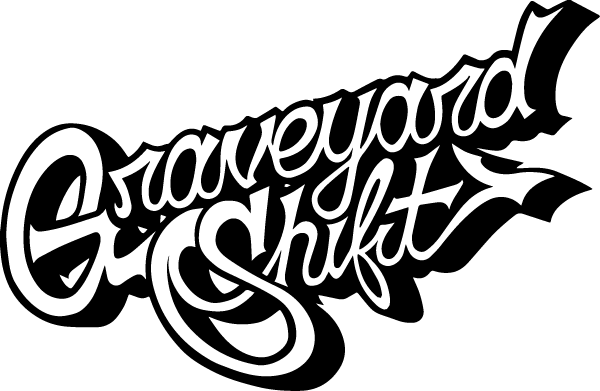```html
Andre 3000 Reacts to Aging Comments Backlash in Hip-Hop
The ever-evolving world of hip-hop is no stranger to controversy. Recently, hip-hop legend Andre 3000 found himself entangled in a nuanced debate surrounding ageism in the music industry. In this article, we delve into Andre 3000's reaction to the backlash and explore the broader implications of ageism in hip-hop.
Understanding the Backlash
The controversy began when Andre 3000, known for his insightful lyrics and eclectic style, made comments about aging in the hip-hop industry. His reflections sparked a wave of backlash, with fans and fellow artists voicing their opinions on various social media platforms.
But what exactly did he say that ignited such a response?
Andre 3000's Comments
Andre 3000 was candid in his assessment of aging within the hip-hop community, stating that he felt a sense of displacement as he grew older. He mentioned that the industry often favors younger artists, making it challenging for aging rappers to maintain relevance. His remarks highlighted a sensitive issue: the treatment of veteran artists in a genre often marked by its youthful energy.
“I struggle with the idea that hip-hop is a young man’s game,” Andre 3000 said in a recent interview.
He added, “It’s tough to keep up with the trends, and sometimes it feels like the industry doesn’t value the experience and wisdom that comes with age.”
The Public's Reaction
Andre 3000’s comments were met with a mixed response. While some fans appreciated his honesty and resonated with his views, others felt that he was unfairly dismissing the contributions of older artists who continue to shape the genre.
Many fans took to Twitter and Instagram to voice their opinions, creating a polarizing dialogue.
Several high-profile artists shared their own experiences of aging in the industry, adding fuel to the conversation.
Support from Fellow Artists
Interestingly, numerous well-respected figures in the hip-hop community rallied behind Andre 3000, commending his courage to speak out on a subject many shy away from. For instance, Nas and Jay-Z, both of whom are over 40 and still thriving in their careers, lent their voices to the conversation.
Nas tweeted, “Andre 3000 hitting the nail on the head. Respect to all our OGs still hustling in this game.”
Jay-Z remarked in an interview, “It’s important we address ageism in hip-hop. Our experience is valuable, and the culture needs to embrace that.”
Andre 3000's Response to the Backlash
After observing the mixed reactions to his comments, Andre 3000 took to social media to clarify his stance and address the backlash head-on.
A Clarification
In a heartfelt video posted on his Instagram, Andre 3000 acknowledged the diverse perspectives his initial remarks had elicited. He clarified that his intention was not to discredit the contributions of older artists but to shed light on the inherent challenges they face.
“I’ve got nothing but love for my fellow artists grinding regardless of age,” he said. “My comments weren’t meant to diminish anyone. Rather, I wanted to spark a discussion about how age impacts our career trajectories.”
A Call to Action
Andre 3000 didn’t stop at clarification. He called for a broader conversation within the hip-hop community to address ageism and find ways to support artists throughout their careers.
- “Let’s create platforms where older artists can thrive,” he suggested.
- “We need to celebrate the legacy and ongoing contributions of our seasoned rappers.”
The Broader Implications of Ageism in Hip-Hop
Andre 3000’s comments and the subsequent dialogue have underscored a critical issue in the hip-hop industry. Ageism often goes unaddressed, yet it significantly impacts artists and the culture as a whole.
Valuing Experience and Wisdom
Hip-hop, with its rich history and evolution, stands to benefit from the wisdom and experience of its older artists. These individuals have navigated the changing landscape and can offer invaluable insights and mentorship to younger generations.
Veteran artists like Rakim, KRS-One, and Ice-T continue to influence the genre, demonstrating that talent and relevance aren’t bound by age.
Their experiences can help guide emerging artists and preserve the authenticity and depth of hip-hop culture.
Creating Inclusive Platforms
For hip-hop to truly thrive, the industry must create inclusive platforms that allow artists of all ages to shine. This includes:
- Providing equal opportunities for older artists to release new music and perform.
- Championing collaborations between younger and older artists to bridge generational gaps.
- Highlighting the stories and achievements of veteran artists to educate and inspire new audiences.
Conclusion
Andre 3000’s comments on aging in hip-hop have sparked a vital conversation about ageism in the industry. By addressing the challenges faced by older artists and advocating for a more inclusive culture, Andre 3000 has once again proven why he is a respected voice in hip-hop. As the genre continues to evolve, it’s essential to value the contributions of artists at every stage of their careers and ensure that hip-hop remains a space where all voices are heard and celebrated.
```

